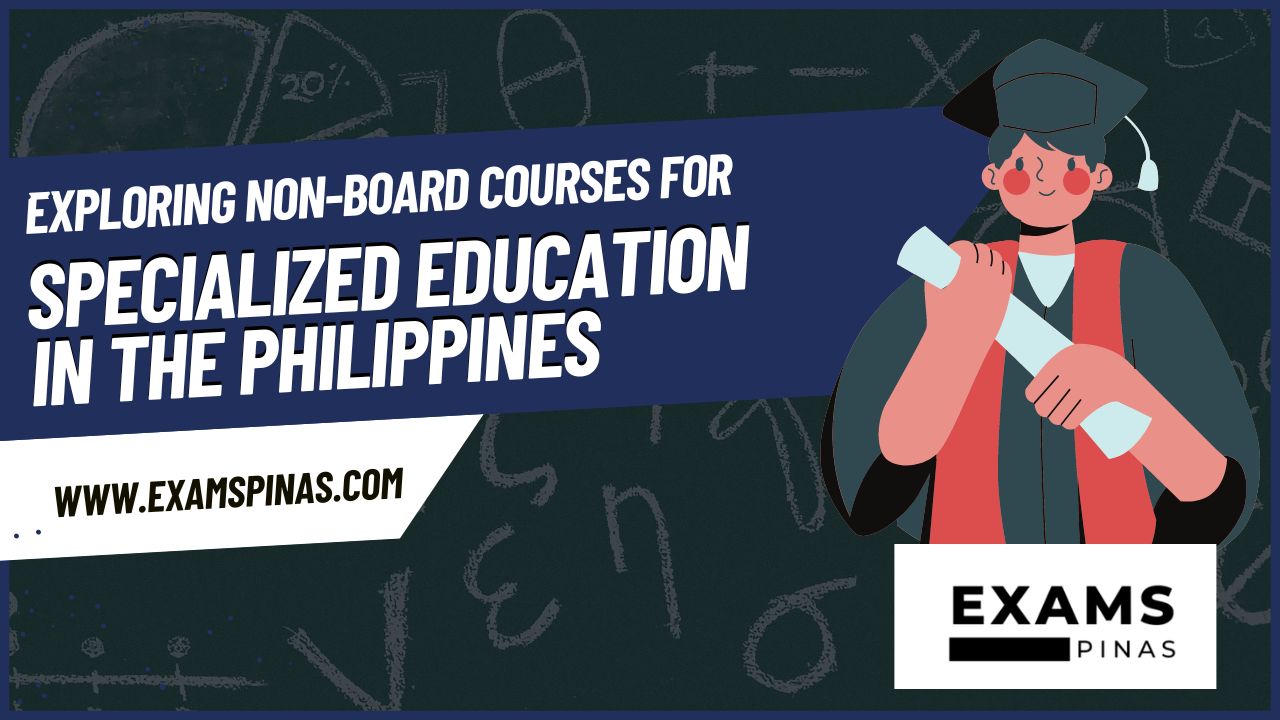In the dynamic landscape of education, a new paradigm is emerging. Traditional board exams are no longer the sole path to knowledge and success. Non-board courses are revolutionizing the way individuals acquire specialized education in the Philippines.
The Evolution of Education
* Traditional vs. Non-Board Education
Traditional education has long been synonymous with standardized testing and board exams. However, this model doesn’t always cater to the diverse talents and interests of students. Non-board education, on the other hand, offers a more flexible and tailored approach.
* Focusing on Practical Skills
Non-board courses are designed to equip students with practical skills that are directly applicable in the real world. Whether it’s mastering a culinary technique, honing coding skills, or understanding the nuances of business administration, these courses provide hands-on training.
Niche Learning Tracks
* Culinary Arts and Hospitality Management
In the vibrant world of hospitality, a non-board course in culinary arts and hospitality management takes center stage. Students delve into the art of cooking, learn the intricacies of menu planning, and understand the operations of the hospitality industry.
* BS Information Science
For tech enthusiasts, the Bachelor of Science in Information Science offers a deep dive into the world of information technology. From database management to data analysis, this course provides the skills needed to navigate the digital landscape.
* BS Computer Science
In an era defined by technology, the Bachelor of Science in Computer Science stands as a beacon of relevance. This course encompasses software development, algorithms, and artificial intelligence, preparing graduates to innovate in the tech sector.
* BS Business Administration
The Bachelor of Science in Business Administration sharpens the skills needed for effective management in the corporate world. Covering finance, marketing, and organizational behavior, this course nurtures future business leaders.
Advantages of Non-Board Courses
* Targeted Skill Development
Non-board courses eliminate the need for a one-size-fits-all curriculum. Instead, they offer targeted skill development tailored to the demands of specific industries.
* Reduced Academic Pressure
Without the looming shadow of board exams, students in non-board courses can focus on practical learning and skill application. This fosters a more relaxed and conducive learning environment.
* Industry-Relevant Curriculum
Non-board courses are frequently updated to incorporate the latest industry trends and technologies. This ensures that graduates are well-versed in current practices.
Choosing the Right Path
* Assessing Interests and Goals
Selecting a non-board course requires careful consideration of personal interests, career goals, and skill set. It’s essential to align the chosen course with one’s long-term aspirations.
* Researching Accredited Institutions
Opt for reputable institutions or training centers that offer accredited non-board courses. This ensures that the education provided meets industry standards.
* Exploring Career Opportunities
Before enrolling in a non-board course, it’s prudent to research potential career opportunities in the chosen field. This helps set realistic expectations for the post-graduation journey.
+
Embracing Specialized Education
Non-board courses mark a shift towards a more personalized and skill-centric approach to education. By choosing specialized training over traditional board exams, students can embark on a journey of focused skill development and practical learning. It’s a testament to the evolving landscape of education and the diverse opportunities that await those with the courage to pursue them.

